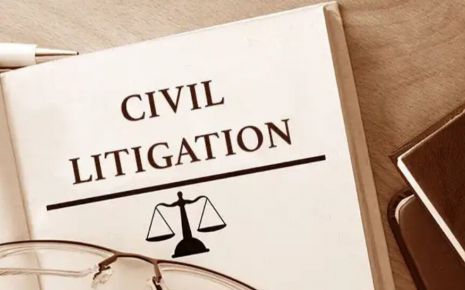Communication In Indian Contract Act: Evolution From Non-Instantaneous Communication To Instantaneous Communication
Contract is the essence of any transaction that happens across borders; it is
the legally binding nature of it that makes it distinct from agreements.
Contracts in India are governed by the Indian Contract Act 1872, which provides
for the essentials that are required for any contract to come into force.
When an offer is made, and the acceptor accepts it in the same sense, then a contract comes into place and becomes binding. Communication in the contract expresses our willingness to accept or reject the offer. For a contract to come into place, communication is to be established. It is the communication that establishes acceptance or revocation of the offer. In traditional contracts, we see the use of express and non-instantaneous modes of communication, but as time changes today, we see contracts are established even with telephonic conversations, which are not provided in ICA 1872.
In this paper, we will see the evolution of the traditional mode of communication with today's use of electronic communication and will see several judgements that cater to this whole change that has been brought about.
In this case, the defendant's nephew absconded from home, and the defendant sent his servant(plaintiff) to search the boy. After that, the defendant announced a reward of Rs 501 for whoever might find the boy, The plaintiff brought the boy and asked for the reward, which was announced. It was held that since the plaintiff was ignorant of the offer when it was made, it cannot be considered that he might have accepted the proposal and done the act based on that does not mean acceptance of the offer.
It was held in the judgment of Powell v. Lee[4]:
Communication must be made by the offeree or his authorised agent (only offeree can accept the offer)[5]
Non-instantaneous mode of communication or Postal rule of communication of acceptance.
When the proposal is assented by the offeree, it is deemed to be accepted by the offeree, but the communication of it is required for a contract to come into place.
The communication of proposals, the acceptance of proposals, and the revocation of proposals and acceptance, respectively, are deemed to be made by any act or omission of the party proposing, accepting or revoking, by which he intends to communicate such proposal, acceptance or revocation, or which has the effect of communicating it.[6]
The communication of acceptance is complete as against the proposer when it is put in the course of transmission to be out of the power of the acceptor[7]. The communication of acceptance is complete against the acceptor when it comes to the proposer's knowledge.
For example, B accepts A's proposal by a letter sent by post. The communication of the acceptance is complete,
As against A, when the letter is posted,
As against B, when the letter is received by A
Here in India, the offeror becomes bound immediately when the letter of acceptance is posted to him, but the offeree becomes bound only when his letter of acceptance comes to the offeror's knowledge [8]. In England, both the offeree and offeror become bound when the letter of acceptance is put in the course of transmission. The ideal rule for acceptance is that acceptance of proposal or offer is complete when it is received by offeror but in postal rule acceptance is deemed to be completed when the acceptance is put in the course of transmission so as to be out of power of acceptor.
In J.K. Enterprises v. State of M.P.[9] Petitioner submitted tender to purchase tendu leaves on 11-2-93. The respondent sent communication of acceptance by 12-2-93 on the address given by petitioner. The letter of acceptance was however, return to the respondents. It was held that despatch of letter has amounted to acceptance and completion of contract.
In Adams v Lindsell[10], the defendant had offered to sell wool to the plaintiff via letter; owing to the wrong address of the letter, it could have arrived at the plaintiff's place before September 5. This also led to a delay in the letter of acceptance, and the same arrived on September 9 at the defendant's place, and meanwhile, on 8th September, the defendant had already sold his wool to some other third party. The issue before the court was about the commencement of the acceptance and, therefore, the contract.
The Court held the suit in favour of the plaintiff, stating that the acceptance was complete as against the offeror at the time when the letter was put to post and, therefore, there existed a contract between the plaintiff and the defendant and selling of wool to the third party was a breach of that contract. The court further held that the communication of acceptance was completed as against the acceptor when it came to the knowledge of the proposer. This is considered to be a landmark judgement for postal rule.
In Household Fire and Carriage Insurance Co. v. Grant[11], It was held by the court of appeal that Grant had become bound by the contract when the letter of acceptance was posted to him and, therefore, he was bound to pay for those shares.
For the instantaneous mode of communication, see the case of Bhagwandas Goverdhandas Kedia v. Girdharilal and Co.[12] it is a landmark for its interpretation and precedent set for subsequent cases. This case changed the earlier postal rule for telephonic communication in the Contract Act.
Supreme Court has held that in the case of telephonic conversation, the position was the same as in the case where the parties were in the presence of each other, and the rule of a contract through post did not apply to such contracts. In the case of acceptance sent by post, the contract is concluded when the letter of acceptance is posted, whereas in the case of acceptance by phone, the contract is deemed to be complete when the offeror hears the acceptance at his end rather than when the acceptor speaks the words of acceptance.
In the Bhagwandas case, the plaintiffs made an offer on the phone from Ahmedabad for the purchase of cotton seed cake from the defendants. The defendants accepted this offer on the phone at Khamgaon. The defendants, having failed to supply the cake, were sued by the plaintiffs to pay compensation; the suit was filed in Ahmedabad. The defendants contended that the Ahmedabad court had no jurisdiction because the contract was completed by accepting the offer on the telephone at Khamgaon.
On the other hand, the plaintiffs pleaded that the contract was struck when the acceptance was communicated to him at Ahmedabad; therefore, the suit was within the jurisdiction of the Ahmedabad Court. It was held that the contract was made at Ahmedabad, where the acceptance was communicated, and the part of the cause of action for action for the breach of contract in this case had arisen within the jurisdiction of Ahmedabad court.
Explaining the nature of the contract entered into on the phone, the Apex Court observed:
In the case of a telephone conversation, in a sense, the parties are in the presence of each other: each party can hear the voice of the other. There is instantaneous communication of speech intimating offer and acceptance, rejection or counter offer. [13]The intervention of an electrical impulse, which results in the instantaneous communication of messages from a distance, does not alter the nature of the conversation to make it analogous to that of an offer and acceptance through post or by telegraph.
Communication by fax is also instantaneous and is, in fact, done through a telephone connection.
In case of communication by fax, the Bombay High Court in Quadricon Pvt. Ltd. V. Bajrang Alloys Ltd.[14] Ruled that the normal rule would apply and the contract would be completed only when the acceptance was received by the offeror.
In England, the Court of Appeal in Entores Ltd. V. Miles Far East Corporation also took a similar view.[15] Regarding the contract entered into by telephone or telex, it was observed, " where a contract is made by instantaneous communication, e.g., by telephone, the contract is complete only when the acceptance is received by the offeror since generally an acceptance must be notified to the offeror to make a binding contract."
Section 10A of the Information Technology Act,2000 provides legal validity to contracts done by email
So, a contract through email is considered valid, and communication through it can bring a contract into place.
Conclusion
In conclusion, communication in Indian Contract Act has evolved from the traditional method of post/telegram to telephonic communication, where communication of acceptance is not complete till it is heard by the offeror, deviating from the old rule where communication is completed when a letter of acceptance was posted, this has brought a drastic changes in whole contract law as it raised the question of when did the contract form. With changing times, courts in India have relied on the precedence set by the Bhagwandas vs Girdharilal case, and there have arisen some cases where it is still doubtful what the way forward will be. These changes in Indian contract law form the base for research and discussion among the legal fraternity.
End-Notes:
When an offer is made, and the acceptor accepts it in the same sense, then a contract comes into place and becomes binding. Communication in the contract expresses our willingness to accept or reject the offer. For a contract to come into place, communication is to be established. It is the communication that establishes acceptance or revocation of the offer. In traditional contracts, we see the use of express and non-instantaneous modes of communication, but as time changes today, we see contracts are established even with telephonic conversations, which are not provided in ICA 1872.
In this paper, we will see the evolution of the traditional mode of communication with today's use of electronic communication and will see several judgements that cater to this whole change that has been brought about.
Offer and its communication:
- Communication of an offer can be either expressed or implied; an express offer is made by word of mouth or by writing, and an implied offer is an offer inferred from the offeror's conduct.
- Communication of offer is completed regarding the knowledge of the person to whom it is made.
In this case, the defendant's nephew absconded from home, and the defendant sent his servant(plaintiff) to search the boy. After that, the defendant announced a reward of Rs 501 for whoever might find the boy, The plaintiff brought the boy and asked for the reward, which was announced. It was held that since the plaintiff was ignorant of the offer when it was made, it cannot be considered that he might have accepted the proposal and done the act based on that does not mean acceptance of the offer.
Acceptance and its communication:
- When the proposal made by the offeror is assented by the offeree, it is said that the offer has been accepted and the offer, when accepted, becomes a promise that is binding in nature.
- The person making the proposal does not become bound until it has been accepted; it is only after acceptance that it becomes a promise, whereby both parties become bound.
- The offeror can revoke the proposal till the offer is accepted by the offeree; after acceptance, it can be revoked and becomes binding in nature.
- In Felthouse v. Bindley, it was held that "for a valid contract the acceptance should be communicated and moreover such communication should be made to the offeror.
It was held in the judgment of Powell v. Lee[4]:
Communication must be made by the offeree or his authorised agent (only offeree can accept the offer)[5]
Non-instantaneous mode of communication or Postal rule of communication of acceptance.
When the proposal is assented by the offeree, it is deemed to be accepted by the offeree, but the communication of it is required for a contract to come into place.
The communication of proposals, the acceptance of proposals, and the revocation of proposals and acceptance, respectively, are deemed to be made by any act or omission of the party proposing, accepting or revoking, by which he intends to communicate such proposal, acceptance or revocation, or which has the effect of communicating it.[6]
The communication of acceptance is complete as against the proposer when it is put in the course of transmission to be out of the power of the acceptor[7]. The communication of acceptance is complete against the acceptor when it comes to the proposer's knowledge.
For example, B accepts A's proposal by a letter sent by post. The communication of the acceptance is complete,
As against A, when the letter is posted,
As against B, when the letter is received by A
Here in India, the offeror becomes bound immediately when the letter of acceptance is posted to him, but the offeree becomes bound only when his letter of acceptance comes to the offeror's knowledge [8]. In England, both the offeree and offeror become bound when the letter of acceptance is put in the course of transmission. The ideal rule for acceptance is that acceptance of proposal or offer is complete when it is received by offeror but in postal rule acceptance is deemed to be completed when the acceptance is put in the course of transmission so as to be out of power of acceptor.
In J.K. Enterprises v. State of M.P.[9] Petitioner submitted tender to purchase tendu leaves on 11-2-93. The respondent sent communication of acceptance by 12-2-93 on the address given by petitioner. The letter of acceptance was however, return to the respondents. It was held that despatch of letter has amounted to acceptance and completion of contract.
In Adams v Lindsell[10], the defendant had offered to sell wool to the plaintiff via letter; owing to the wrong address of the letter, it could have arrived at the plaintiff's place before September 5. This also led to a delay in the letter of acceptance, and the same arrived on September 9 at the defendant's place, and meanwhile, on 8th September, the defendant had already sold his wool to some other third party. The issue before the court was about the commencement of the acceptance and, therefore, the contract.
The Court held the suit in favour of the plaintiff, stating that the acceptance was complete as against the offeror at the time when the letter was put to post and, therefore, there existed a contract between the plaintiff and the defendant and selling of wool to the third party was a breach of that contract. The court further held that the communication of acceptance was completed as against the acceptor when it came to the knowledge of the proposer. This is considered to be a landmark judgement for postal rule.
In Household Fire and Carriage Insurance Co. v. Grant[11], It was held by the court of appeal that Grant had become bound by the contract when the letter of acceptance was posted to him and, therefore, he was bound to pay for those shares.
Instantaneous Mode Of Communication Or Telephonic/Telex Rule Of Communication:
In ICA 1872, we do not see any mention of whether these provisions relate to communication made with the help of telephone and telex also. The illustration given in sections 4 and 5 of ICA, which talks about communication of offer and acceptance and their revocation, makes it clear that these provisions will apply only to communication through post rather than telephone or telex.For the instantaneous mode of communication, see the case of Bhagwandas Goverdhandas Kedia v. Girdharilal and Co.[12] it is a landmark for its interpretation and precedent set for subsequent cases. This case changed the earlier postal rule for telephonic communication in the Contract Act.
Supreme Court has held that in the case of telephonic conversation, the position was the same as in the case where the parties were in the presence of each other, and the rule of a contract through post did not apply to such contracts. In the case of acceptance sent by post, the contract is concluded when the letter of acceptance is posted, whereas in the case of acceptance by phone, the contract is deemed to be complete when the offeror hears the acceptance at his end rather than when the acceptor speaks the words of acceptance.
In the Bhagwandas case, the plaintiffs made an offer on the phone from Ahmedabad for the purchase of cotton seed cake from the defendants. The defendants accepted this offer on the phone at Khamgaon. The defendants, having failed to supply the cake, were sued by the plaintiffs to pay compensation; the suit was filed in Ahmedabad. The defendants contended that the Ahmedabad court had no jurisdiction because the contract was completed by accepting the offer on the telephone at Khamgaon.
On the other hand, the plaintiffs pleaded that the contract was struck when the acceptance was communicated to him at Ahmedabad; therefore, the suit was within the jurisdiction of the Ahmedabad Court. It was held that the contract was made at Ahmedabad, where the acceptance was communicated, and the part of the cause of action for action for the breach of contract in this case had arisen within the jurisdiction of Ahmedabad court.
Explaining the nature of the contract entered into on the phone, the Apex Court observed:
In the case of a telephone conversation, in a sense, the parties are in the presence of each other: each party can hear the voice of the other. There is instantaneous communication of speech intimating offer and acceptance, rejection or counter offer. [13]The intervention of an electrical impulse, which results in the instantaneous communication of messages from a distance, does not alter the nature of the conversation to make it analogous to that of an offer and acceptance through post or by telegraph.
Communication by fax is also instantaneous and is, in fact, done through a telephone connection.
In case of communication by fax, the Bombay High Court in Quadricon Pvt. Ltd. V. Bajrang Alloys Ltd.[14] Ruled that the normal rule would apply and the contract would be completed only when the acceptance was received by the offeror.
In England, the Court of Appeal in Entores Ltd. V. Miles Far East Corporation also took a similar view.[15] Regarding the contract entered into by telephone or telex, it was observed, " where a contract is made by instantaneous communication, e.g., by telephone, the contract is complete only when the acceptance is received by the offeror since generally an acceptance must be notified to the offeror to make a binding contract."
Contract through E-mail
In Sapna Ganglani v. M/s. R.S. Enterprise[16], the Karnataka High Court has observed that whether a contract in respect of immovable property, entered into through e-mail, was enforceable was a mixed question of facts and law. The question, the Court said, could be decided by the trial court after a full-fledged trial.Section 10A of the Information Technology Act,2000 provides legal validity to contracts done by email
So, a contract through email is considered valid, and communication through it can bring a contract into place.
Conclusion
In conclusion, communication in Indian Contract Act has evolved from the traditional method of post/telegram to telephonic communication, where communication of acceptance is not complete till it is heard by the offeror, deviating from the old rule where communication is completed when a letter of acceptance was posted, this has brought a drastic changes in whole contract law as it raised the question of when did the contract form. With changing times, courts in India have relied on the precedence set by the Bhagwandas vs Girdharilal case, and there have arisen some cases where it is still doubtful what the way forward will be. These changes in Indian contract law form the base for research and discussion among the legal fraternity.
End-Notes:
- (1913) 11 All LJ 489.
- Section 2(b), the Indian Contract Act, 1872.
- (1863) 7 LT 835.
- (1908) 99 LT 284.
- rules of communication of acceptance. https://urlausn.is/anemone-nemorosa-tyatyv/rules-of-communication-of-acceptance-66c1fd
- Contract Through Postage And Telephone - iPleaders. https://blog.ipleaders.in/contract-postage-telephone/
- Contract And E-Contract under English And Indian Laws. https://legalserviceindia.com/legal/article-2268-contract-and-e-contract-under-english-and-indian-laws.html
- All Contracts Are Agreements, But All Agreements Are Not Contracts � ConsultCorp. https://consultcorplegal.com/all-contracts-are-agreements-but-all-agreements-are-not-contracts/
- A.I.R. 1997 M.P. 68.
- Adams v Lindsell, Lawteacher.net (2022). https://www.lawteacher.net/cases/adams-v lindsell.php
- (1879) 4 Ex. D. 216.
- Bhagwandas Goverdhandas Kedia vs M/S. Girdharilal Parshottamdas AIR1966 SC 543. https://www.delhilawacademy.com/bhagwandas-goverdhandas-kedia-v-girdharilal-parshottamdas/
- A.I.R. 2008 Bom. 88.
- (1955) 2 Q.B. 327.
- AIR 2008 Kar. 178.
Law Article in India
Legal Question & Answers
Lawyers in India - Search By City
LawArticles
How To File For Mutual Divorce In Delhi

How To File For Mutual Divorce In Delhi Mutual Consent Divorce is the Simplest Way to Obtain a D...
Increased Age For Girls Marriage

It is hoped that the Prohibition of Child Marriage (Amendment) Bill, 2021, which intends to inc...
Facade of Social Media

One may very easily get absorbed in the lives of others as one scrolls through a Facebook news ...
Section 482 CrPc - Quashing Of FIR: Guid...

The Inherent power under Section 482 in The Code Of Criminal Procedure, 1973 (37th Chapter of t...
The Uniform Civil Code (UCC) in India: A...

The Uniform Civil Code (UCC) is a concept that proposes the unification of personal laws across...
Role Of Artificial Intelligence In Legal...

Artificial intelligence (AI) is revolutionizing various sectors of the economy, and the legal i...








Please Drop Your Comments